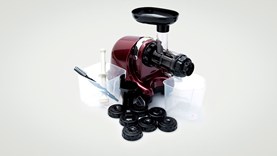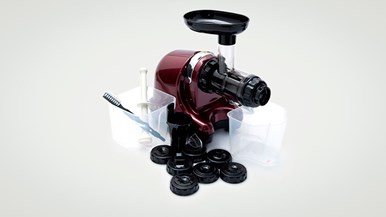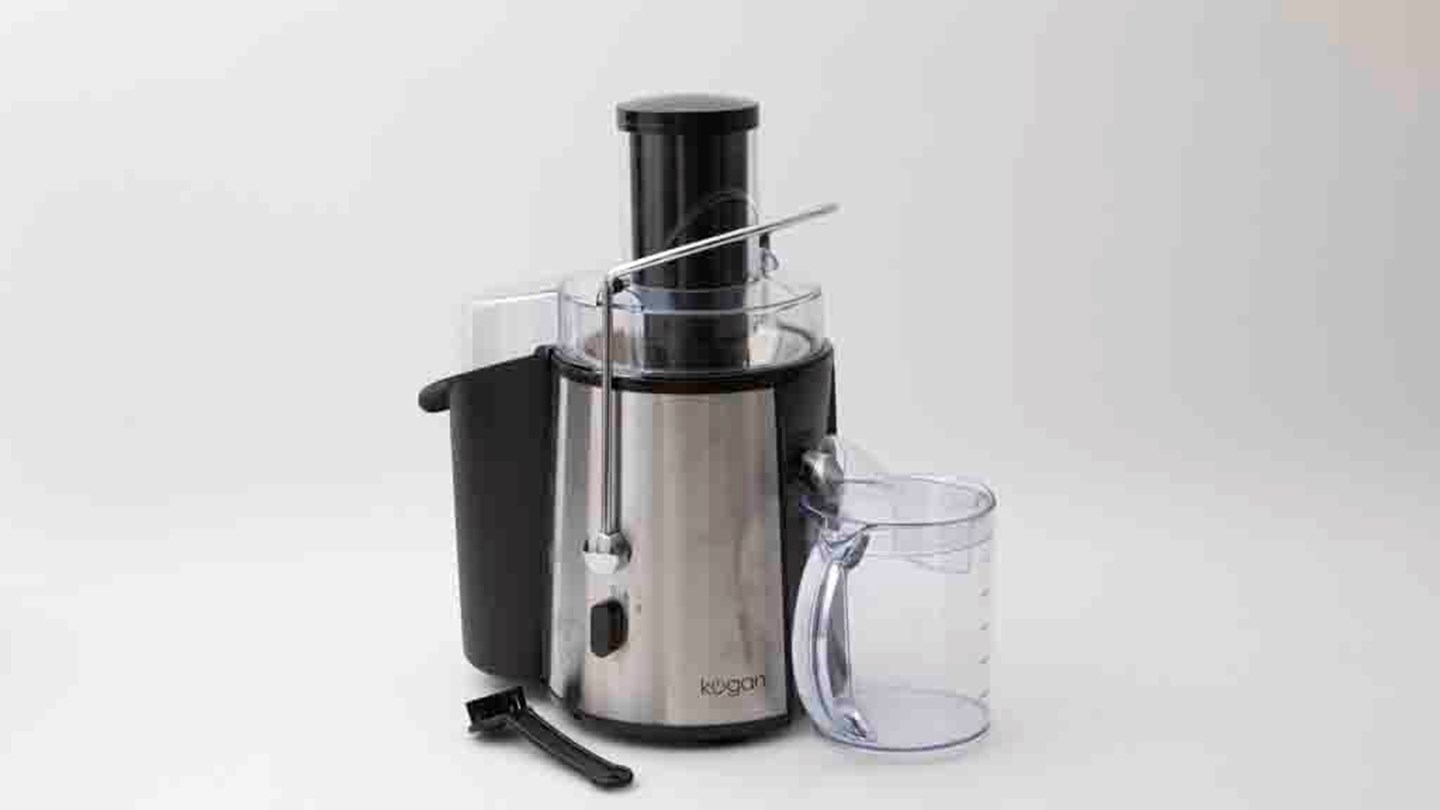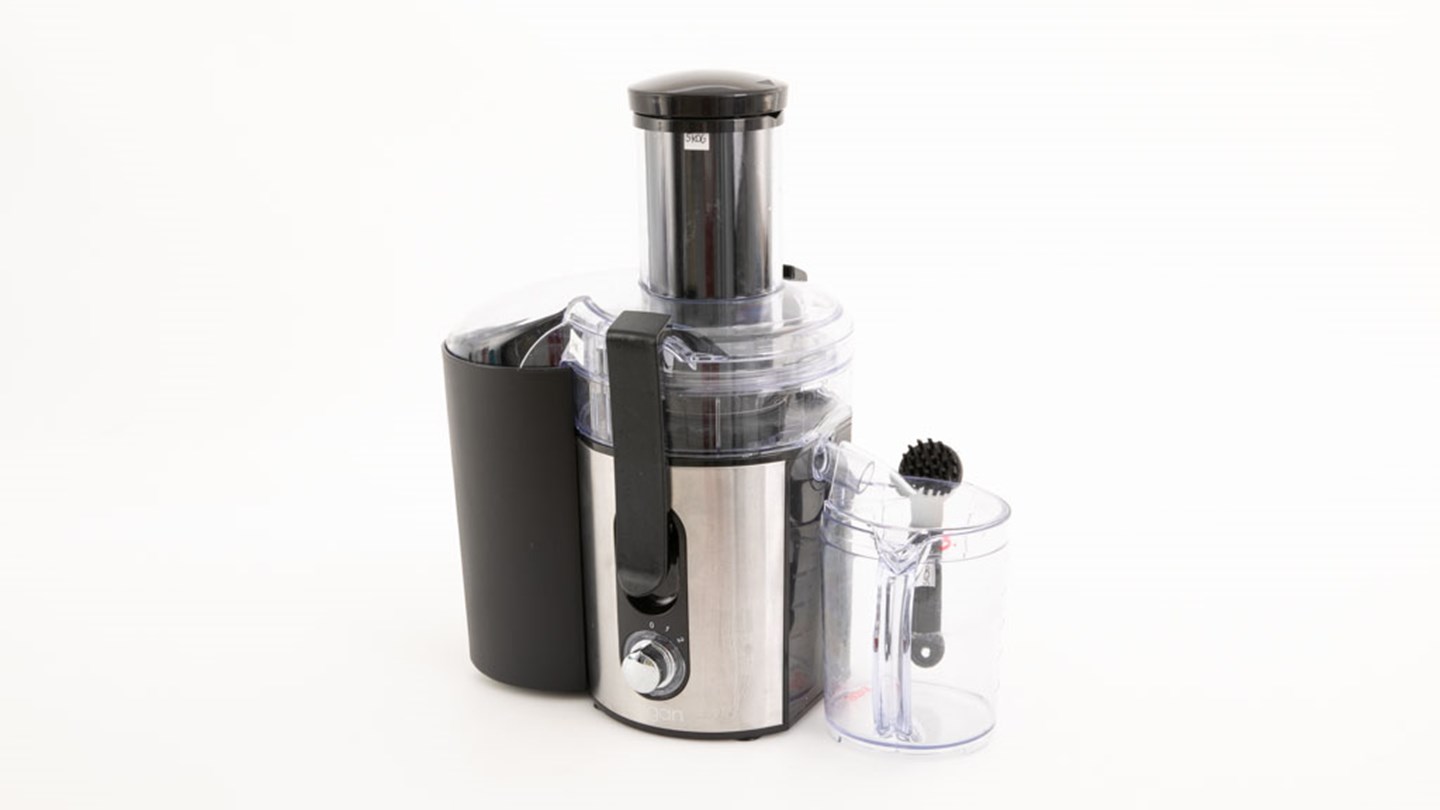Oscar Neo DA1000 review
Slow juicer. Priced at $529.

Good points
Bad points

Unlock our expert review and more
- Reviews and ratings you can trust
- Easy side-by-side comparison
- Recommended products at a glance
-
Recommended
View more details.
We recommend currently available models that score 70% or higher. These juicers performed best in our tests and were easiest to use.
-
CHOICE Expert Rating
View more details.
This overall score is made up of ease of use (70%), and juicing yield (30%). We think that if a juicer is too difficult and fiddly to use, it's more likely to stay in the cupboard, so we've given ease of use a higher weighting.
-
Ease of assembly score
View more details.
We assess how easy the various parts are to assemble. This accounts for 25% of the ease of use score.
-
Ease of cleaning score
View more details.
We assess how easy it is to clean the juicer. This accounts for 25% of the ease of use score.
-
Ease of use score
View more details.
The ease of use score is based on general ease of juicing and how small the pieces have to be to fit into the chute (50%), ease of assembly/disassembly (25%), and ease of cleaning (25%).
-
Yield score
View more details.
The higher the yield score, the more juice we could extract from the fruit or vegetables.
-
Average juicing time (min:sec)
View more details.
Average juicing time is the average time taken to juice 1kg of produce for each juicing test. Note that some juicers struggled with leafy greens and took significantly more time than their average - see the bad points for these models.
-
Quality of juice
View more details.
This tells you the type of juice each juicer makes. Fast centrifugal juicers tend to produce frothier, more aerated juice with little pulp, whereas slow juicers produce pulpier juice with less aeration and frothiness. It's a personal preference as to which juice texture is preferred.
-
Carrot juice yield (g)
View more details.
The amount of carrot juice produced from 1kg of carrots and weighed in grams (similar to ml equivalent)
-
Apple juice yield (g)
View more details.
The amount of apple juice produced from 1kg of apples and weighed in grams (similar to ml equivalent).
-
Orange juice yield (g)
View more details.
The amount of orange juice produced from 1kg of oranges and weighed in grams (similar to ml equivalent).
-
Green juice yield (g)
View more details.
The amount of green juice made from a total of 1kg of produce, which included English spinach, pear, cucumber, kiwi fruit, celery, and mint. The quantity of each individual food item was also measured and remained consistent for each product tested. Expressed as grams (similar to ml equivalent).
-
Noise level (dBA)
View more details.
We measure how noisy juicers are on the fastest setting. A typical conversation is 60dB, city traffic is measured at around 80dB.
-
Brand reliability score
View more details.
Scores are taken from our brand reliability survey, but do not add to the overall score. The score refers to the brand, not a particular model.
-
Brand satisfaction score
View more details.
We survey members to find out how happy they are with their juicer. The scores refer to brands, not models, and aren't part of the overall score.
-
Availability
View more details.
This is whether or not it's available in stores.
- Tested model
-
Price
View more details.
This is the recommended or typical retail price.
- $529
-
Number of speeds
View more details.
Depends on juicer type. For fast juicers, multiple speeds are ideal: high for juicing hard fruit/veg and low for softer fruit/veg. For slow juicers, a reverse function is handy for unclogging fruit/veg.
- 1 + reverse
-
Pulp container location
View more details.
A separate pulp container is better as it reduces build up of pulp around the sieve.
- Outside
-
Chute size
View more details.
A large chute is easier and quicker to use, as pieces of fruit and vegetables don't need to be cut too small. But make sure the blade assembly can't be easily touched through the chute, especially for little fingers.
- Very narrow
-
Weight (kg)
View more details.
How heavy the juicer was when we weighed it, minus the jug.
- 5.9
-
Dimensions (H x W x D, cm)
View more details.
This is the measured height, width and depth of each unit, with the juice spout positioned in front but the juice jug not in place, i.e. the most logical position that it will sit on the bench ready for use.
- 41 x 18 x 41
-
Juice jug capacity (mL)
View more details.
A 1000ml jug can accommodate a decent amount of juice. If there's no jug supplied, ensure the spout can fit over a decent sized jug from your kitchen.
- 1000
- Website
- vitality4life.com.au/
-
Dishwasher safe
View more details.
Whether juice jug, lid and filters are dishwasher safe (usually top rack only). See manuals for suitability of other parts.
- No
- Able to puree
- Yes





